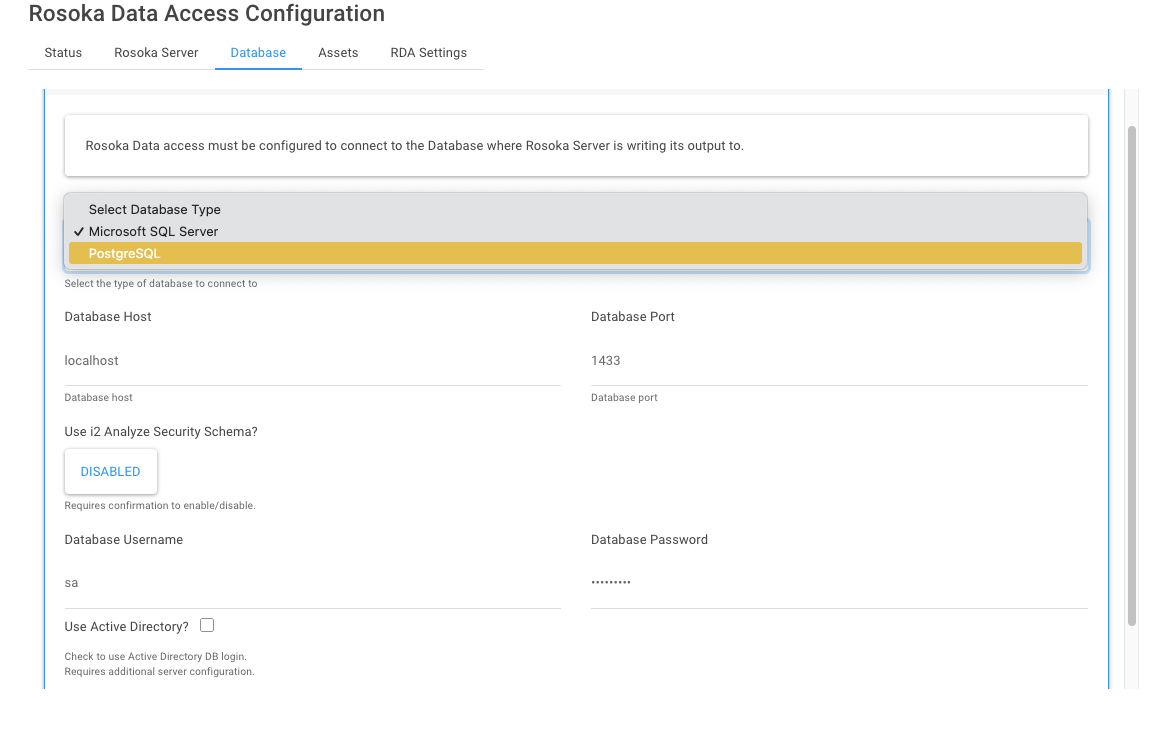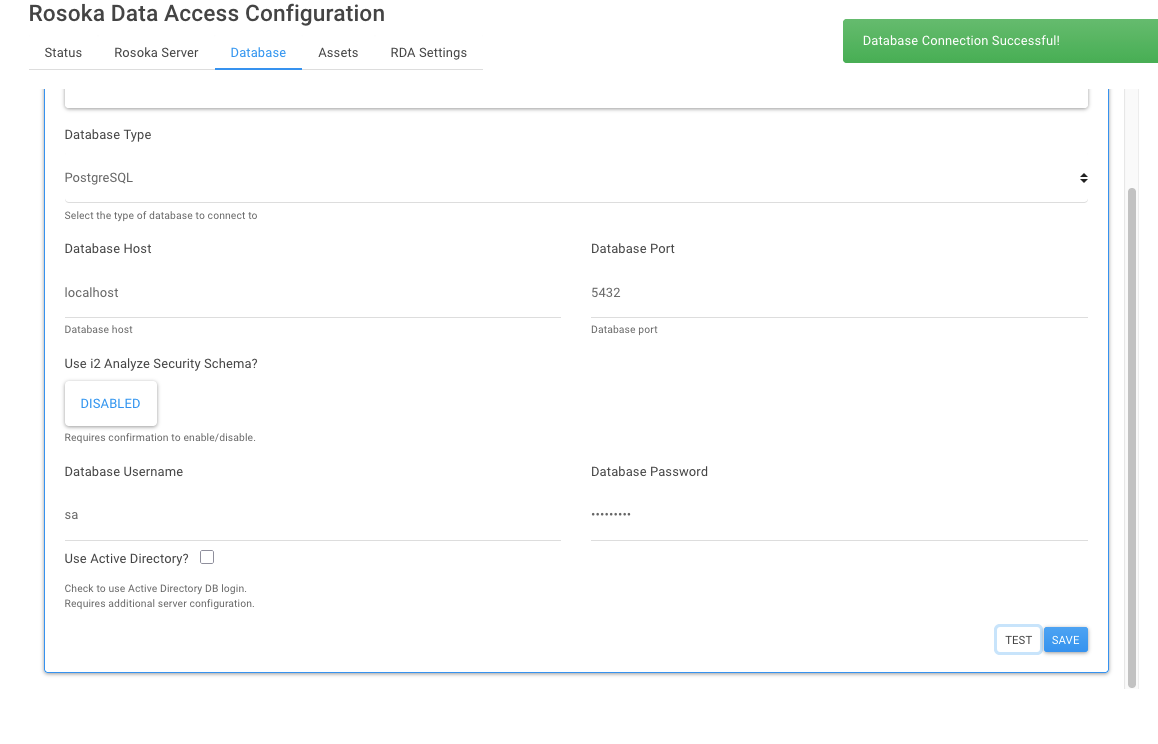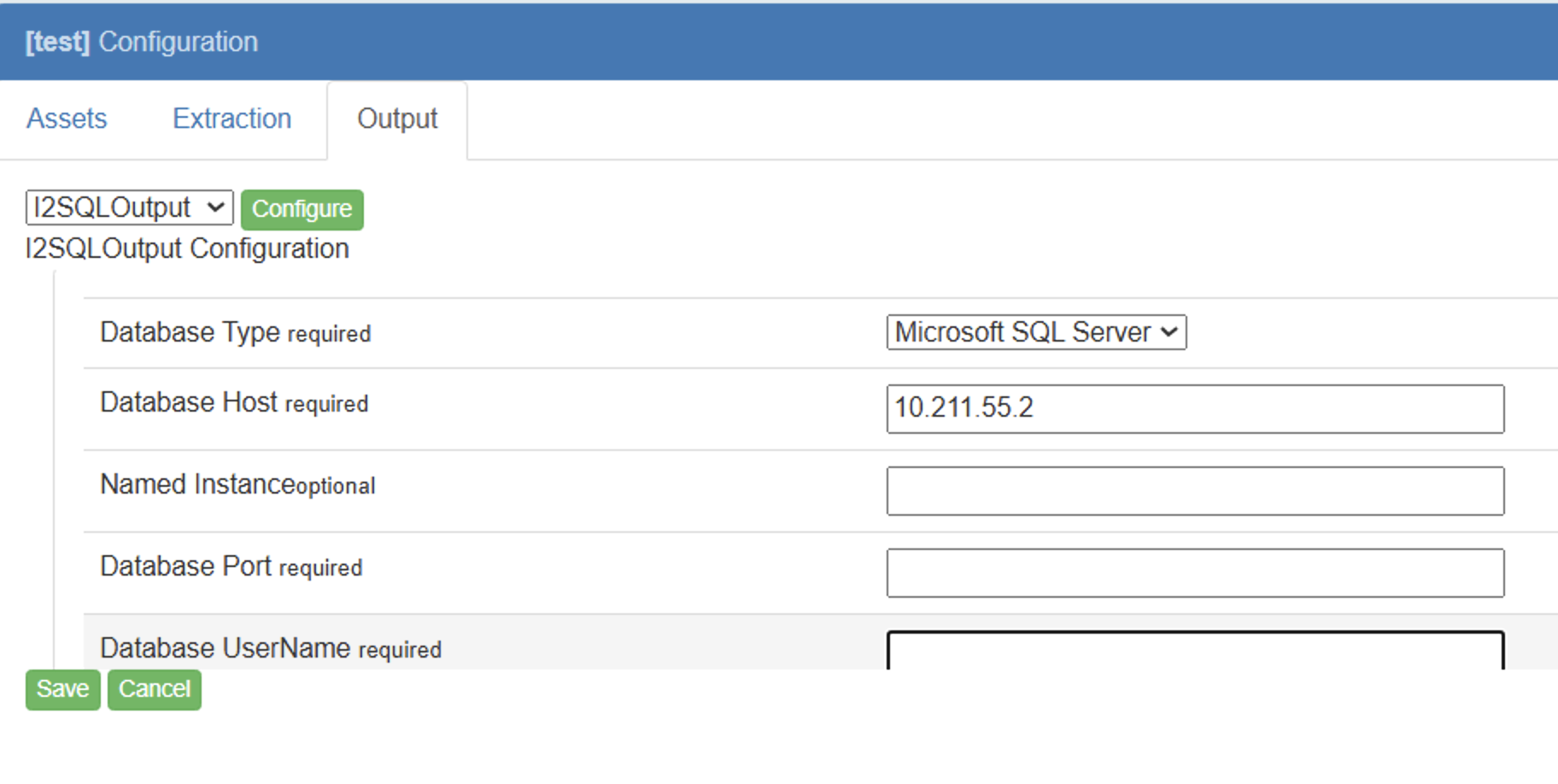PostgreSQL Integration Guide
This document provides instructions for setting up and using PostgreSQL integration across both TextChart Extraction Manager, TextChart Extraction Worker, and TextChart Data Access components. It consolidates all necessary setup, configuration, and troubleshooting steps into one cohesive guide.
Prerequisites:
A PostgreSQL database that already has the base TextChart tables created.
Valid Licensing for i2 products.
Overview
This guide helps customers connect their applications to PostgreSQL when using TextChart Extraction Manager, TextChart Extraction Worker and TextChart Data Access components. It focuses on user actions and practical setup steps rather than technical implementation details.
Installation and Requirements
Ensure the following requirements are met before beginning setup:
PostgreSQL installed and running
Network access to the PostgreSQL host and port (default: 5432)
Properly configured database credentials (username, password)
Appropriate permissions to create or modify configuration files
Create TextChart Database Tables by running the provided SQL scripts against your PostgreSQL database.
Configuring PostgreSQL within the Admin UI
Navigate to the Database tab
Select PostgreSQL from the Database Type dropdown

Enter host, port (5432), username, and password
Click Test to verify connectivity
Click Save to persist configuration

Restart the server when prompted
Configuring PostgreSQL within the Manager UI
Open Extraction Manager in a browser and navigate to the Clusters tab.
Then, click on the gear next to the cluster you want to enable security on and choose Configure.
Select the Output tab and then press the Configure button.
The first dropdown is Database Type; select PostgreSQL from that list.

From here, Fill in the Database Information:
Database Host: The hostname or IP address of the PostgreSQL server.
Database Port: The port on which the PostgreSQL server is listening (default is 5432).
Database Named Instance: The name of the PostgreSQL database to connect to.
Database UserName: The username for authenticating to the PostgreSQL database.
Database Password: The password for the specified database user.
Press the Save and then Save Changes button.
Additional Resources
PostgreSQL JDBC Documentation: https://jdbc.postgresql.org/
PostgreSQL System Catalogs: https://www.postgresql.org/docs/current/catalogs.html
EclipseLink PostgreSQL Platform: https://www.eclipse.org/eclipselink/documentation/
Troubleshooting
Common issues and resolutions include:
Connection Refused: Ensure the PostgreSQL server is running and the host/port are correct.
Authentication Failed: Double-check credentials in the configuration files.
Table Not Found: Confirm that all required tables exist in the database.
Driver Missing: Ensure the PostgreSQL JDBC driver is installed in your environment.